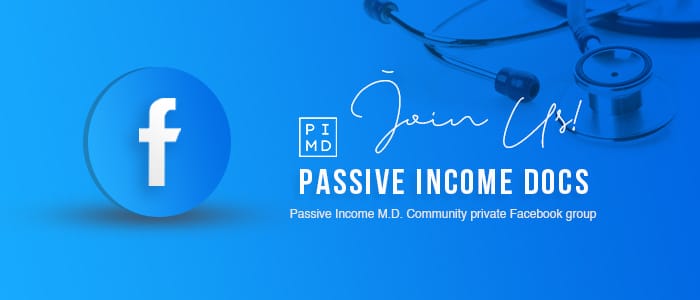
I Am a Doctor and I Hate My Job
This post may contain links from our sponsors. We provide you with accurate, reliable information. Learn more about how we make money and select our advertising partners.
Doctors spend tens of thousands of hours perfecting how to do their jobs and care for their patients, but it often comes at a cost. There are many physicians out there who are starting to come out and say, “I am a doctor and I hate my job.” But, why is that?
The Physician Philosopher explains why he thinks many doctors hate their jobs and continue to experience physician burnout. Take a look and let us know if you agree or disagree in the comments!
Today’s Classic is republished from Physician Philosopher. You can see the original here.
Enjoy!
My kids love the movie “Ralph Breaks the Internet.” The two main characters, Ralph and Vanellope, are video game characters trying to find a replacement for a broken piece to Vanellope’s outdated racing game. If they don’t find a replacement, her game will be shut down permanently.
As they search for the missing piece, Ralph and Vanellope walk up to a desk called “Knowsmore,” which is meant to symbolize a search engine (e.g. Google, Bing, or Yahoo).
As Ralph begins to talk, the Owl running the search bar tries to finish Ralph’s sentences to direct them to the right information.
Ralph stutters, “Um” and the owl responds, “Um…brella, umbrage, umami?”
Of course, this is exactly what happens in real life, too. If you start typing into a search engine (i.e. you start to “google” something) it will come up with the most popular way to finish your thought so that the search engine can most quickly and accurately answer your question.
How many of us would finish the sentence, “I am a doctor and…” For some, they would say that they are miserable in a profession that was meant to be a calling.
I am a Doctor and I Hate My Job
According to the 2019 Medscape Physician Burnout and Depression survey, approximately 45% of physicians are burned out with three specialties (urology, neurology, and PM&R) having burnout rates that exceed 50%.
For any of us who have known the lonely and cold road to burnout, this makes sense. To those who still don’t understand why wellness is important, it is probably a shock.
I’d argue that every one of the top ten reasons for burnout found in the Medscape survey maintains one major theme – they are each a part of the job we are powerless to change.
In other words, we have a lack of autonomy despite the thousands of hours we spent learning how to do our job.
For example, according to the survey, the top three contributors to physician burnout were:
- Too many “bureaucratic tasks” (records, charting, paperwork, etc)
- Spending too many hours at work (i.e. poor work-life balance)
- Electronic Medical Records
See how these items are outside the control of the physician?
Given the relationship between autonomy and job satisfaction (it’s one of three key components to enjoying your work), the increasing rate of burn out makes sense.
Naturally, it begs the question: how do we get more control over our life?
The Cure for Burnout
In past surveys, physicians have felt that getting paid more might help, and I’ve previously discussed why this is a ridiculous idea. Most physicians are so financially illiterate that more money might make the problem worse. Not better.
In the 2019 survey, the most common ways physicians are dealing with burnout includes exercise and talking to friends and family.
However, this ignores one major causal relationship: the amount of time spent at work, which directly corresponds to burnout rates. The survey showed that 36% of physicians working 31-40 hours admitted to being burned out compared to 57% of physicians who worked 71 or more hours.
Given the linear relationship between hours worked and burnout, I would propose a different solution, cutting back at work. We could also consider the other readily accessible options to treat burnout.
Aside from cutting back to part-time work or chipping away at the parts of the job that we hate the most, one of the best ways to combat the physician burnout epidemic is to control what we can – our personal finances.
It is one thing in our control that wields enough power to prevent the bitterness that can often build when the hospital doesn’t love us back.
There is no reason to feel locked in a cage if we hold the key.
We can work towards limiting lifestyle inflation, and widen the gap between our income and spending. Then, we are free to invest our money wisely. This is a quick recipe to achieve early financial independence, and freedom from administrative tyranny.
A financially independent doctor has a choice. They can keep working full-time at work, or they can start pursuing Partial FIRE where they cut out the things they don’t like, or go part-time if that is what is needed.
Financial Freedom for Doctors
You might wonder why I am so quick to link burnout and financial freedom. The reason is that I see them as intrinsically linked.
There are two core beliefs that led to me starting this site. [The following is copied and pasted directly from my “about” page.]
- I believe that a financially independent physician – or one who at least has a clear path to getting there – is a better doctor.
- When we choose to practice medicine because we want to (and not because we have to), everyone benefits – including our patients.
Financial independence provides freedom for doctors. This freedom can stave off the worst possible burnout.
Why? Because if it gets worse, we can always walk away. That’s true autonomy. Some call it “F-You” money, though I am not quite so bold.
Either way, we must realize that our lifestyle choices lock us in a cage. If we sell the cage (our expensive house, cars, private schooling, and designer gadgets), we might find that freedom we’ve been looking for.
In the end, these “things” are not really what produce meaningful happiness anyway.
Is personal finance hard? Yes. But figuring it out is also worth it to deal with the burnout epidemic we are currently facing.

Take Home
Like Ralph and Vaneloppe, we can find success if we learn where to find it.
If you are saying, “I am a doctor and I hate my job” I hope you will consider taking corrective actions that place you on the path to financial independence. It just might save you.
It is important to avoid making the burnout worse through lifestyle inflation. We should consider part-time work. Or cutting out the parts of the job we do not enjoy.
If we lack autonomy at work, we can find that autonomy in our personal finances. Control what you can; otherwise what you can’t will control you.
Have you ever felt trapped in a job, or found yourself saying, “I hate my job?” What were the drivers of your dissatisfaction? What was the remedy? Leave a comment below.
Disclaimer: The topic presented in this article is provided as general information and for educational purposes. It is not a substitute for professional advice. Accordingly, before taking action, consult with your team of professionals.

